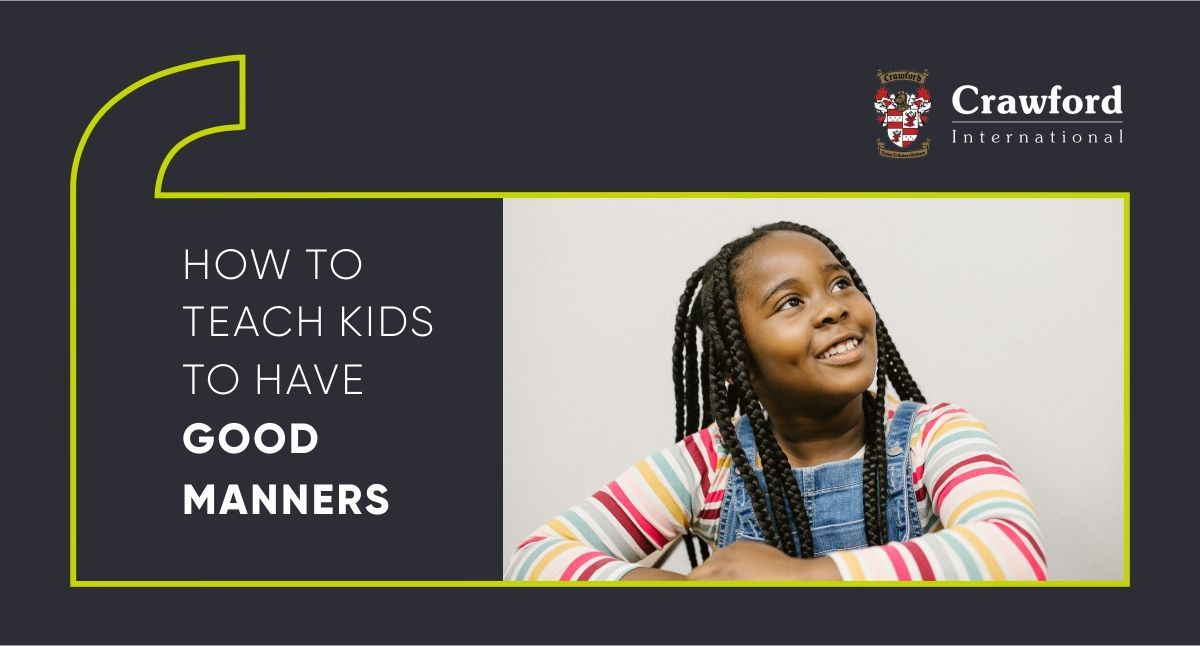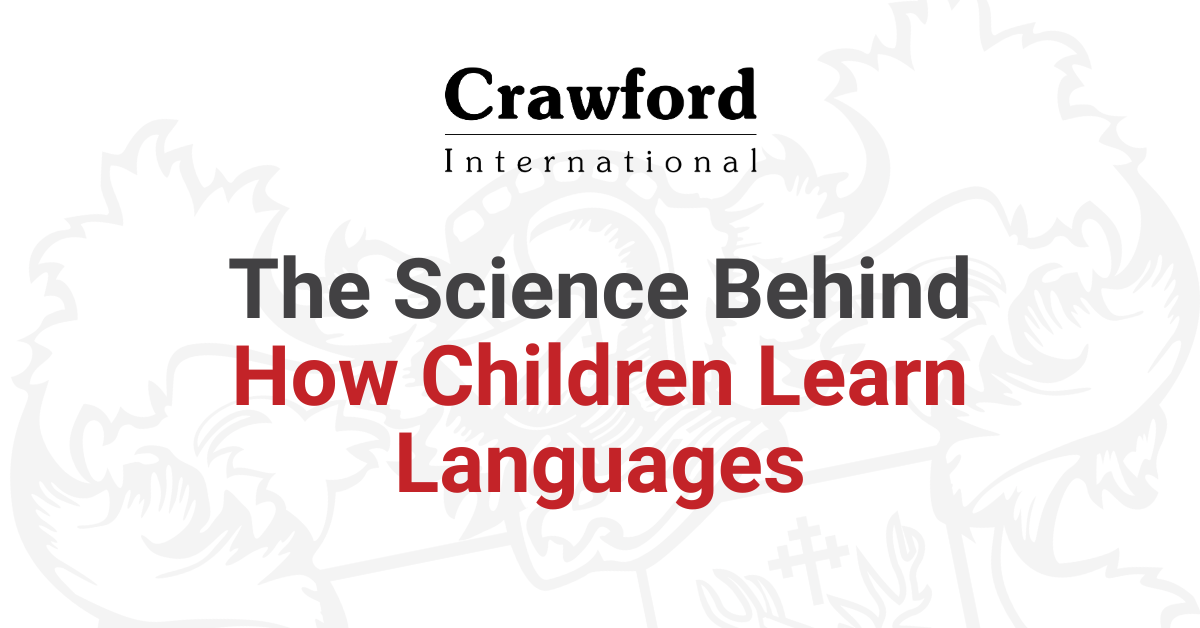How to teach kids to have good manners
March 24, 2023
Why manners matter at every age, plus ‘manners’ tips you can teach your kids.

Minding Ps and Qs can boost a child’s independence, self-esteem and confidence. However, teaching your child how to mind their Ps and Qs can be a bit of a challenge. Here are some helpful tips.
Why are manners important?
They’re not just a way to be polite, manners actually have some real-world benefits that your child can enjoy throughout their lives.
- They show people respect, which in turn earns respect.
- They show appreciation, thoughtfulness, and gratitude, which are important in an age of entitlement.
- They are noticed and appreciated regardless of age, gender, or race – manners create common ground when facing barriers or differences.
- They aid in effective and assertive communication.
- They affect how others perceive us.
- They play a big role in our relationships with others – not only friends, family, teachers, and peers, but also in the workplace and other formal settings.
- They help to maintain fairness and empathy in relationships.
- Using manners also demonstrates mindfulness, something as small as holding the door open for someone as they enter keeps you in the moment and engaging in the present.
Age-by-age manners to focus on
Much like walking, riding a bike, and reading, learning good manners is something that can and should happen from a young age. Like so many of the things we teach our children, they learn their biggest lessons in manners by watching you, so make sure you’re modelling good manners in your own interactions and everyday life.
It’s also important to keep your child’s age, capabilities and emotional development in mind. This empowers you to successfully teach them manners at every stage of life.
One to Two years - Your child is still too young to understand the whys of wrong and right, but they do imitate the behaviours that they see. Now is the ideal time to introduce “the magic words”, which include, “please,” “thank you,” “I’m sorry,” “Excuse me,” and “May I.”
You could roleplay with their stuffed animals or cars by creating situations where these manners are required. For example, “I’m sorry I bumped your car,” or, “Please pass me the blue book, Teddy Bear.”
You could also introduce the very basic concepts of table manners, but try not to get too focused on this. They are too young to learn table manners, but you can start teaching them that burping is rude and requires a, “I’m sorry.”
Also teach your child to give you their plate or cup when they are finished so that they start learning to clear up after a meal.
Three to Seven years - In the preschool and early school years, your child is starting to understand what values and manners are, and that their actions have consequences. So it’s a good idea to focus on manners that are about respect and how we treat others, such as greeting people politely when we see them, how to share and take turns, cleaning up after themselves, basic hygiene, and listening/not interrupting. Here are some strategies for this:
- Talk about the importance of sharing. Tell your child that the reason why we share with others is that it gives us more – we get to play with more things, enjoy more time with our friends, to learn more and understand more. Explore this through roleplaying with their toys or by reading books on the subject.
- Encourage your child to share and take turns with you, their siblings, and friends at playdates and social gatherings.
- Make it very clear that we keep our hands to ourselves – no hitting or pinching. The same goes for name calling.
- Practise saying hello to people and what to call them. This is really a decision to make as a parent, but an example would be to call grownups Mr or Mrs (or as many South Africans do Aunty So-and-so or Uncle so-and-so). Talk about what to do when greeting someone – a simple wave while you speak or a handshake, for instance. Then it’s also important to talk through what to do when people want a hug or kiss – teach your child that it’s okay to wave or shake hands while saying hello, but it's not okay to just ignore the person. Use their toys and stuffed animals to practice these scenarios a bit.
- Picking up after themselves is a way to respect not just themselves but their things (and others’ things). So, after playtime it’s time to pick up their toys, dirty clothes, and books and put them away. This is also important to do at parties or playdates.
- Saying goodbye respectfully is also important. Teach your child that they have to say goodbye and thank you as a way to show the person how much fun you have with them.
You could also grow their understanding of table manners at this stage. For example, using utensils, not talking with their mouth full of food, passing something rather than leaning over the table, and even helping to set the table with you or helping to clear the table after meals.
Seven to Ten years - This is where children develop a strong sense of fairness and start understanding the importance of rules and boundaries. Now is the time to teach them manners around respect and gratitude.
- Being a good sport is a vital lesson as it’s all about playing by the rules to ensure fairness, while also showing respect to yourself, your team mates, and your opponents. Huge life lessons that will help in their friendships and relationships. So, teach your child to give everyone on their team the chance to shine and do well – especially those younger than him. Explain good sportsmanship and what you expect from him in this matter – congratulating others on their wins, acknowledging everyone’s effort, thanking them for the opportunity to play, and learning from your mistakes.
- Respecting other peoples’ space and belongings are more lifelong lessons. Talk to your child about why privacy, ownership and boundaries are important – both for them and for others. Then teach them to always ask before she touches or takes things, even when they’re yours. They should also knock and wait for permission to enter before opening a closed door. It’s also a good idea to give them a chance to create some boundaries by putting up signs for their bedroom door so they know it’s their own space.
- Lessons in graciousness continue here too. Showing gratitude is always important, and you can show your child how to write thank you notes or messages to send to friends after parties or playdates. You could also write your child notes of appreciation and pop them in the lunchbox to model this behaviour.
Eleven to Thirteen years - Independent social lives start blossoming and so it’s a good time to teach your child the importance of being a good guest, which will help create and maintain positive and healthy relationships (with boundaries) as they grow. Your child may start going to friends’ houses without your attendance and supervision, and parties and social outings also start about now.
- Firstly, the rules of their own home are at play, as well as the rules of their hosts. This comes down to respecting others.
- They should use their best table manners, speak politely, and use their assertive communication skills.
- This also means that they clean up after themselves.
- Eye rolling, swearing, and other rude behaviour are a no-no, with consequences.
- They should not overstay their welcome, so chat to the host parents about when they should be picked up. Let your child know that they need to say goodbye and thank the hosts when leaving.
Fourteen to Eighteen years - Teens are able to make decisions for themselves based on the values they’ve been raised with, as well as what makes the most sense for themselves and, often, the people around them. This is prime time to reinforce lessons and manners that focus on respecting themselves and other adults – no blowing you off.
- Mutual respect is important. Practise active listening – listen to them and expect them to listen to you in return.
- Being on time for classes, appointments and plans is a way of showing respect, so don’t be late.
- Help others, and especially older people. Volunteering through your church or other charitable organisation close to home is a great way to gain perspective and grow empathy.
- Give them time for privacy – they’re carving out their unique identities and finding out what they want to be and do in the world. But set boundaries for together time, which requires full attention away from social media, music, and friends. Again, this is about respecting each member of the family and showing love and care to strengthen relationships.
Read more helpful Crawford International parenting articles here.












